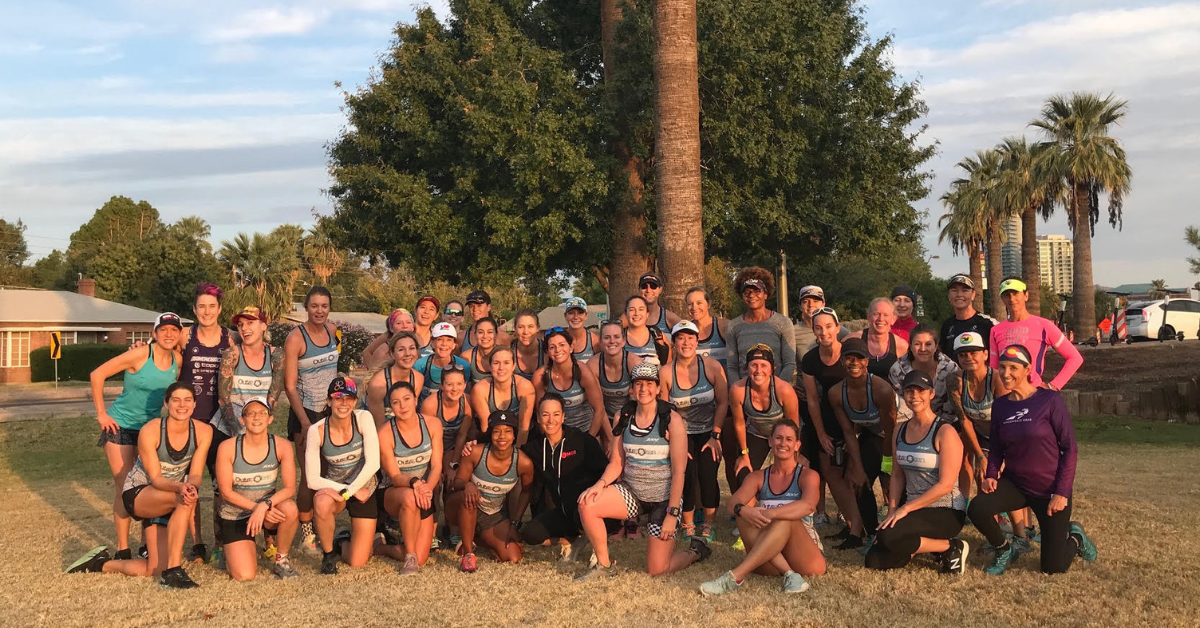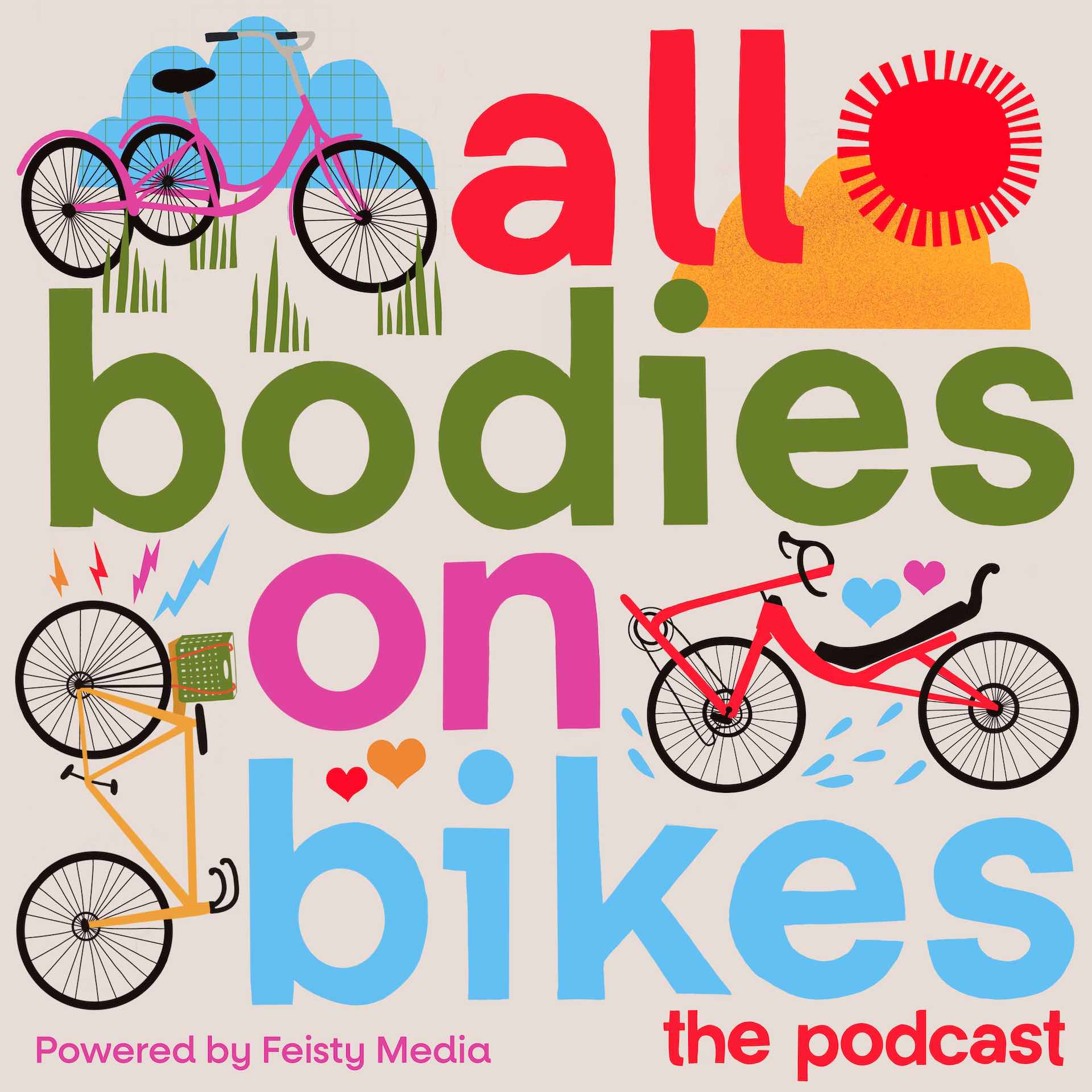April 30, 2023
Three Types of Self-Talk You Need to Succeed

What you say to yourself matters. Here’s how to make it good.
By Selene Yeager
We all have voices in our heads. Some are positive, like the “hell yeah, good job!” you give yourself when you nail a hard lift in the gym. Others are less than positive. They’re the ones saying, “You’re slow. You’re going to embarrass yourself. It’s too cold. It’s too hot. It’s too muddy. You won’t make it to the finish line. You can’t lift that weight.” And for most of us, those negative voices are the ones with the megaphones that can get deafeningly loud when we’re scared, going through hard things, facing a challenge, or doing anything that pushes us out of the proverbial comfort zone.
Psychology aptly names these voices “self-talk” and they’re simply “the things we say to ourselves about ourselves and about what we’re going through,” explains Pat Spencer, LCSW, the founder of the mental coaching company Getting Your Mind in Gear. That naysaying chorus tends to be louder because humans are wired to avoid harm, she says.
“Our brain is wired to protect us. It’s designed to keep us safe and the way it does that is to look for things that are dangerous to us, which is why we get a lot of negative self-talk,” she says. “If you’re out in miserable conditions your brain is saying, ‘This is stupid. It’s cold. It’s raining. C’mon, you need to stop.” That can obviously have a profound effect on your performance, especially when you’re trying to do those hard things.
The good news is that you’re not a helpless recipient of this inner dialogue. You can pull a librarian and tell those voices to pipe down. You can also change their tune to be more in your favor—or at least not self-sabotaging, says Spencer. “Managing self-talk is a trainable skill. It just takes practice.”
Three Types of Self-Talk to Help You Succeed
Your number one goal is to get rid of the negative self-talk. Research shows that negative self-talk in sports predicts negative situational self-talk in competition and cognitive as well as somatic (aka you feel it in your body: tight muscles, upset stomach) anxiety. Unsurprisingly, that can set up a negative loop where that anxiety leads to more negative self-talk, which as you might expect predicts poorer performance. On the flip side, positive self-talk lowers performance anxiety and can help performance.
Spencer recommends practicing the following types of self-talk, especially when you find those negative voices creeping in…our outright trying to bash the door down.
Motivational Self-Talk
This is the gold standard—the kind of messages you would expect from a good coach or those that you would give a friend. It’s phrases like, “You’ve got this. You are strong. It’s just another five miles–anyone can do five miles.” It sounds super simple, but it’s also super effective. One study found that cyclists who practiced motivational self-talk like “You’re doing well.” “Feeling good.” and “Push through this.” not only experienced a significantly lower RPE (rating of perceived exertion) during a cycling time trial, but also improved their performance by 18 percent compared to participants who practiced no positive self-talk.
You can help make this type of self-talk automatic by creating a positive self-talk mantra like “I am strong,” “I am capable,” or “I got this.” that you can repeat to yourself to keep the negative voices at bay. Some athletes find it especially helpful to physically write these mantras down and put them where they can see them, like taped to the top tube of their bicycle or on a wristband they wear during competition.
Motivational self-talk can also help quell race-day nerves, such as reframing the anxiety you feel as excitement with a phrase like, “I am buzzing and ready to go.”
Finally, motivational self-talk can even work when you’re deep in the pain cave, which despite an encyclopedia’s worth of positive self-talk, you’re bound to find yourself in if you go hard enough. Some of the best advice I ever got was from US Olympic Committee sports psychologist Sean McCann, Ph.D., who told his athletes to reframe the pain as success and use motivational phrases like: “This is what it feels like to go fast.” Then keep pushing.
Instructional Self-Talk
Another type of productive self-talk is instructional self-talk. This is also similar to what a good coach would say to you when you’re in a rough patch, but instead of a more global, “You got this” type of self-talk, it focuses on telling yourself what to do. So if you’re struggling at mile 10 of a half marathon, instructional self-talk would be cueing yourself on what to concentrate on to get to the finish line like, “Stand tall, run light.” or “Breathe in, breathe out, stay loose, keep going.”
Other examples can be externally oriented like if you’re climbing a long hill on your bike, you can think, “Just get to that mailbox. Just get to that telephone pole. Just get to that pine tree.” Or if you’re in the gym, focusing on the steps like, “Push the ground away” when you’re going for a deadlift can keep your mind from drifting into negative territory while also implementing productive self-talk.
Neutral Self-Talk
If you’re struggling to knock the negative voices out of your head, one quick trick is going for neutral, says Spencer. “Simply say what you’re seeing, ‘The mud is dark brown. The grass is very green.’ Narrating what you are seeing is a way to bring your brain into the present and replace the negative narrative.”
You can even set yourself up to stay in this neutral place by giving yourself specific things to look for before you set out. “If I’m going out for a training ride and I know it’s going to be hard because there’s a lot of headwind or other challenging elements, I’ll look for turtles on my route, and try to find multiple turtles on one log together. It keeps my brain from going into the “Oh my God this is hard” place, which isn’t helpful. Occupying it looking for turtles is helpful.”
The more you practice these techniques, the easier they become, says Spencer. The goal is to notice when you have negative self-talk and replace it with positive/neutral self-talk whenever you can. “I encourage people to write down what they want to say/hear and to look for times of the day to practice it. The more we practice, the better we get. Ultimately, it’s not about getting it right 100 percent of the time. It’s about being kinder, gentler, and more compassionate to yourself more often.”


 Outspoken Women in Triathlon Summit Returns Bigger than Ever
Outspoken Women in Triathlon Summit Returns Bigger than Ever  Driving the Lamborghini: Productivity and the Power of Paper
Driving the Lamborghini: Productivity and the Power of Paper  5 take aways from the Compete Sports Diversity Summit
5 take aways from the Compete Sports Diversity Summit  Simple Tips to Hone Your Bike Handling Skills
Simple Tips to Hone Your Bike Handling Skills 

